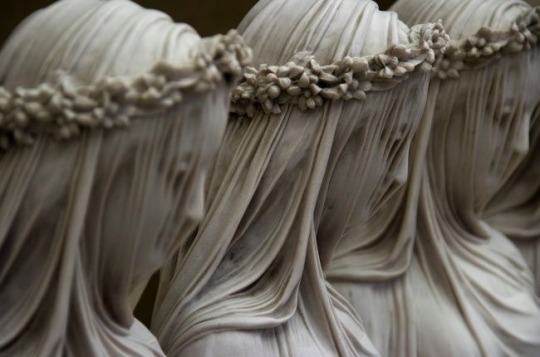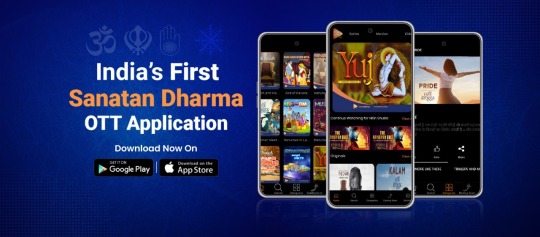#devotional worship
Explore tagged Tumblr posts
Text
Understanding Devotional Worship: A Path to Spiritual Fulfillment
Devotional worship is a profound practice that has been a part of human culture for centuries. It is a way for individuals to connect deeply with the divine, expressing their love, reverence, and faith. Whether you are new to this practice or seeking to deepen your understanding, this guide will provide insights into the essence of devotional worship and how platforms like omtvlive can enhance your spiritual journey.

What is Devotional Worship?
Devotional worship refers to acts of devotion directed towards a deity or higher power. These acts can include prayer, singing hymns, chanting mantras, meditating, and performing rituals. The purpose of devotional worship is to express love and gratitude to the divine, seek guidance, and find spiritual solace.
Benefits of Devotional Worship
Inner Peace: Engaging in devotional worship helps calm the mind and bring inner peace. It provides a break from daily stresses and allows individuals to focus on the divine presence.
Spiritual Growth: Regular practice fosters spiritual growth. It deepens one's faith, enhances understanding of spiritual principles, and strengthens the connection with the divine.
Emotional Well-Being: Devotional worship can be a source of comfort during challenging times. It helps in coping with emotions like fear, anxiety, and sadness by providing a sense of hope and reassurance.
Community Connection: Participating in devotional worship within a community can create a sense of belonging and support. It brings people together in a shared expression of faith and devotion.
Forms of Devotional Worship
Devotional worship can take many forms, each with its own unique practices and traditions. Here are some common forms:
Prayer: A fundamental aspect of devotional worship, prayer involves communicating with the divine. It can be a request for help, an expression of gratitude, or simply a way to feel closer to the higher power.
Chanting and Singing: Chanting mantras or singing hymns and bhajans are powerful ways to engage in devotional worship. The repetitive nature of chanting helps focus the mind and create a meditative state.
Meditation: Meditation is a silent form of devotional worship where individuals sit quietly, focus on the divine, and cultivate a sense of inner stillness and connection.
Rituals and Offerings: Performing rituals and making offerings are traditional practices in many religions. These acts symbolize devotion and reverence towards the deity.
Pilgrimages: Traveling to sacred sites and participating in religious festivals are also forms of devotional worship. These journeys often provide a deep sense of spiritual renewal.
Enhancing Devotional Worship with Omtvlive
In today’s digital age, accessing resources for devotional worship has become easier than ever. Platforms like omtvlive play a crucial role in bringing devotional content to people worldwide. Here’s how omtvlive can enhance your devotional worship experience:
Live Streaming: Omtvlive offers live streaming of religious ceremonies, prayers, and spiritual discourses. This allows you to participate in devotional worship from the comfort of your home, especially if you cannot visit a place of worship.
On-Demand Content: The platform provides a wide range of on-demand content, including recorded prayers, bhajans, and spiritual talks. You can access these resources anytime, making it convenient to incorporate devotional worship into your daily routine.
Community Engagement: Omtvlive fosters a sense of community by connecting viewers with like-minded individuals. You can participate in live chats, discussions, and virtual prayer sessions, creating a shared space for devotion and support.
Educational Resources: The platform offers educational content that helps deepen your understanding of various aspects of devotional worship. This can include explanations of rituals, the significance of festivals, and teachings from spiritual leaders.
Diverse Practices: Omtvlive caters to a wide range of religious and spiritual traditions. This diversity allows you to explore different forms of devotional worship and find what resonates most with your spiritual path.
Tips for Deepening Your Devotional Worship
If you want to deepen your devotional worship, consider these tips:
Consistency: Make devotional worship a regular part of your routine. Consistent practice helps cultivate a stronger connection with the divine.
Sincerity: Approach devotional worship with sincerity and an open heart. Genuine devotion enhances the spiritual experience.
Learn and Explore: Use platforms like omtvlive to learn about different practices and traditions. Exploring various forms of devotional worship can enrich your spiritual journey.
Create a Sacred Space: Designate a quiet, clean space in your home for devotional worship. This can help you focus and create a peaceful environment for your practice.
Connect with Others: Engage with your spiritual community, whether online through omtvlive or in person. Sharing your experiences and learning from others can be incredibly enriching.
Conclusion
Devotional worship is a beautiful and meaningful way to connect with the divine and nurture your spiritual growth. It offers numerous benefits, from inner peace to a stronger sense of community. Platforms like omtvlive make it easier than ever to access devotional content and enhance your practice. By incorporating devotional worship into your daily life and exploring the resources available through omtvlive, you can embark on a fulfilling spiritual journey filled with love, devotion, and enlightenment.
#vedic philosophy#classical hinduism#hindu philosophy#hindu religion philosophy#hindu vedanta#jnana yoga#advaita vedanta philosophy#advaita vedanta in hindi#vaishnava tradition#jain religion#tantric traditions#vedic religion#devotional worship#modern hinduism#vedic scriptures#spiritual realization#dharmic religions#indian religions
2 notes
·
View notes
Text
Understanding Classical Hinduism: A Journey Through Ancient Beliefs
Classical Hinduism is one of the oldest and most diverse religious traditions in the world. It encompasses a rich tapestry of beliefs, practices, and rituals that have evolved over thousands of years. This blog will guide you through the essential aspects of Classical Hinduism, shedding light on its core principles, major texts, and how it continues to influence people today. Along the way, we'll also touch on a resource called OMTVLive, which provides insightful content related to this ancient religion.

What is Classical Hinduism?
Classical Hinduism refers to the set of religious practices and philosophies that developed in ancient India. It is characterized by its deep spiritual teachings, extensive rituals, and a vast array of deities and myths. Unlike many other religions, Classical Hinduism does not have a single founder or a central text. Instead, it is a collection of diverse beliefs that have coalesced over centuries.
Major Texts of Classical Hinduism
The foundation of Classical Hinduism lies in its sacred texts, which are divided into two main categories: Shruti and Smriti. The Shruti texts, which include the Vedas and the Upanishads, are considered the most authoritative. They consist of hymns, prayers, and philosophical discussions. On the other hand, the Smriti texts are more accessible and include the epics like the Mahabharata and Ramayana, as well as the Puranas.
For those interested in exploring these texts further, resources like OMTVLive offer detailed explanations and analyses. OMTVLive provides content that delves into the meanings of these ancient scriptures and how they relate to contemporary life.
Key Beliefs of Classical Hinduism
Dharma: One of the core concepts in Classical Hinduism is Dharma, which refers to the moral order and duties that one must follow. This concept helps guide individuals in making ethical decisions and living a righteous life.
Karma: Another important belief is Karma, the principle of cause and effect. According to this belief, every action has consequences, and one's past actions influence their future experiences.
Moksha: The ultimate goal in Classical Hinduism is Moksha, or liberation from the cycle of rebirth (samsara). Achieving Moksha means attaining a state of eternal peace and unity with the divine.
Rituals and Practices
Classical Hinduism is known for its elaborate rituals and ceremonies. These rituals vary widely but often involve offerings to deities, chanting of mantras, and participation in festivals. Temples play a significant role in these practices, serving as places where individuals can worship and seek guidance.
OMTVLive offers a range of videos and articles that showcase various rituals and festivals in Classical Hinduism. These resources provide a vivid depiction of how these ancient practices are performed and their significance in the daily lives of practitioners.
Deities and Mythology
The pantheon of deities in Classical Hinduism is vast and includes gods and goddesses like Brahma, Vishnu, Shiva, Lakshmi, and Saraswati. Each deity represents different aspects of life and the universe, and devotees often worship specific deities based on their personal needs and goals.
The mythology surrounding these deities is rich and complex, with numerous stories that convey moral and spiritual lessons. OMTVLive is a valuable resource for those who wish to learn more about these myths and their meanings. The platform provides detailed explanations of various stories and their relevance to Classical Hinduism.
Modern Influence and Practice
Classical Hinduism is not just a historical tradition; it continues to influence millions of people around the world today. In modern India, Classical Hinduism shapes daily life, cultural practices, and national festivals. It also impacts the global Hindu diaspora, which maintains and adapts these ancient traditions in new contexts.
For a contemporary perspective on Classical Hinduism, OMTVLive offers modern interpretations and discussions that help bridge ancient practices with current lifestyles. This platform provides valuable insights into how Classical Hinduism is practiced and understood in today's world.
Conclusion
Classical Hinduism is a profound and intricate tradition that has shaped the spiritual and cultural landscape of India for millennia. Its teachings on Dharma, Karma, and Moksha offer valuable guidance for living a meaningful life. Through its sacred texts, rituals, and deities, Classical Hinduism provides a rich tapestry of beliefs that continue to resonate with people today.
For those interested in exploring Classical Hinduism further, OMTVLive serves as an excellent resource. It offers in-depth content that helps illuminate the complexities of this ancient religion and its relevance in the modern world. Whether you're looking to understand ancient texts, explore rituals, or learn about deities, OMTVLive provides a wealth of information to enhance your journey into Classical Hinduism.
By delving into the teachings and practices of Classical Hinduism, we gain a deeper appreciation for its enduring legacy and its role in shaping human spirituality and culture across the ages.
#vedic philosophy#classical hinduism#hindu philosophy#hindu religion philosophy#hindu vedanta#jnana yoga#advaita vedanta philosophy#advaita vedanta in hindi#vaishnava tradition#jain religion#tantric traditions#vedic religion#devotional worship#modern hinduism#vedic scriptures#spiritual realization#dharmic religions#indian religions
0 notes
Text
Okay but did you lust after me a little bit today??
#mine#text post#it’s good for your mental health#and by lust I mean worship me and pledge your undying devotion to me
6K notes
·
View notes
Text
Why is cockwarming only talked about in the sense that you do it before sex and not after too like it’s not the best way to break a puppy into the perfect cocksleeve?
Finally settling down after rounds of different scenes just to pin them under my weight and hold them like a stuffed animal on my cock, letting them whine and squirm at the fullness in their belly from holding all of the constant loads i’ve rutted back inside until they stop and just accept it. Forcing them feel dazed and bred while going in and out of consciousness to a mixture of soft kisses and sweet words, like how I can’t leave yet because they just feel so good around me and what a precious fuckmutt they’ve been for my cock.
How could their poor mind not rewire itself into thinking how grateful they are to be constantly broken and fixed by someone like me by the time i’m done hmm?
#ftm ns/fw#t4t dom#t4t ns/fw#ftm dom#nsft dom#ftm top#t4t top#t4t nsft#bd/sm dom#dom thoughts#dog dom thoughts#dog dom#bd/sm nsft#hard dom#sadist dom#bd/sm sadist#sadist kink#hard k1nk#possessive kink#worship kink#soft cnc#devotion kink#corruption kink#bd/sm corruption#mind corruption#dumbification#c0ckwarming#t4t breeding#bd/sm breeding#ftm breeding
14K notes
·
View notes
Text
When you step into sunlight, you honor Apollo. When you admire the moon, you honor Artemis. When you admire cloud shapes, you honor Hera. When you smell petrichor, you honor Zeus. When you laugh at a joke, you honor Hermes. When your body twitches to dance at a particularly upbeat music, you honor Dinoysus. When you enjoy the first bite of your breakfast, you honor Demeter. When you choose your peace over any conflict, you honor Athena. When you warm yourself up by sheltering yourself in blanket, you honor Hestia. When you listen to Ocean sounds, you honor Poseidon. When you smell flowers, you honor Persephone. When you admire the coolness of first day of Autumn, you honor Hades. When you wear your favourite jewellery, you honor Hephaestus. When you smile, you honor Aphrodite. When you exercise, you honor Ares. When you light a torch in a dark room, you honor Hekate.
Your body is a shrine to Gods, your being an act of devotion for them. You, by yourself, are enough for them.
#hellenic polytheism#apollo deity#aphrodite deity#hellenic worship#hellenic deities#hellenic devotion#hellenic pagan#hellenic pantheon#hermes deity#dionysus deity#demeter deity#zeus deity#hera deity#hephaestus deity#ares deity#poseidon deity#hestia deity#artemis deity#athena deity#hekate deity#hades deity#persephone deity#hellenic gods#hellenic polytheist#hellenic paganism#hellenic polythiest#goddess aphrodite#goddess persephone#goddess hecate#hecate deity
9K notes
·
View notes
Text






— Aphrodite is iridescence, like the shimmer of pearls and seashells, like glittering jewels in the sea
#aphrodite#mermaid#aphrodite deity#aphrodite devotion#aphrodite worship#mermaidcore#sea witch#venus#sea fairy#sea nymph#nereid#oceancore#helpol#hellenic polytheism#hellenic pagan#theoi#aphrodite devotee#aphrodite aesthetic#whimsigothic#hellenism
8K notes
·
View notes
Text
Aphrodite loves sex workers and victims of sexual assault and intersex people and people who are insecure about their body/self harm and nonwhite people and queer people and fat people btw. pass it on
#aphrodite's altar#aphrodite devotion#aphrodite worship#aphrodite deity#helpol#hellenic pagan#hellenic polytheism#aphrodite#aphrodite devotee
2K notes
·
View notes
Text






#vesta 🪔#aesthetics :: 🎨#devotion :: 📿#roman pagan#pagan community#pagan#paganblr#paganism#pagans of tumblr#spiritual#spirituality#polytheism#religion#deity devotion#deity worship#sculpture#italy#marble
15K notes
·
View notes
Text
आज का पंचांग : आश्विन शुक्ल पक्ष द्वितिया व नवरात्रि के दूसरे दिन माता ब्रह्मचारिणी की पूजा के साथ ही करें ये शुभ काम
आज का पंचांग : आज 16 अक्टूबर 2023 सोमवार, के दिन आश्विन महीने की शुक्ल पक्ष द्वितिया तिथि है. इस दिन चंद्रमा का दर्शन शुभ माना जाता है. शादी, वेडिंग रिंग की खरीदी और देवताओं की स्थापना के लिए यह तिथि शुभ होती है. किसी भी तरह के तकरार या विवाद के लिए यह तिथि अच्छी नहीं मानी जाती है. आज माता ब्रह्मचारिणी की पूजा का दिन है. आप माता से आशीर्वाद जरूर लें. 16 October 2023 . Navratri second day . maa…

View On WordPress
#Ashwin Month#Ashwin Month Navratri#Auspicious Beginnings#Auspicious Day#Auspicious Navratri#Blessings and Rituals#Blessings of Devotion#Blessings of Maa Brahmacharini#Celebrating Navratri#Devotee&039;s Journey#Devotion and Faith#Devotional Worship#Divine Blessings#Divine Energy#Faith and Devotion#Faithful Devotion#Maa Brahmacharini Blessings#Maa Brahmacharini Worship#Maa Brahmacharini&039;s Devotees#Maa Brahmacharini&039;s Festival#Maa Brahmacharini&039;s Grace#Maa Brahmacharini&039;s Significance#Navratri Celebration#Navratri Devotion#Navratri Pujas#Navratri Rituals#Second Day of Navratri#Significance of Worship#Spiritual Blessings#Spiritual Experience
0 notes
Text
You can find Aphrodite when you gush over romcoms. You can find Zeus when the rain pours and soaks your hair. You can find Hera when you're loyal to your friends and partners. You can find Ares when you argue with your parents over the causes you believe in. You can find Apollo when the sun caresses your cheek.
The gods are everywhere—you just need to know where to look.
#today i woke up with extra love and adoration for my deities#hellenism#witchblr#apollo#witchcraft#hellenic polytheism#hellenic deities#hellenic pagan#helpol#apollo smintheus#apollo deity#apollo devotion#apollo worship#apollon#apollo devotee#greek gods#ares#aphrodite#zeus#aphrodite worshipper#aphrodite devotion#aphrodite deity#ares deity#ares worship#ares devotion#ares devotee#ares god of war#hera#hera devotion#hera deity
2K notes
·
View notes
Text
FIVE YEARS WITH THE GODS: what I've learned

Don't fixate on the notion of being "called" by a particular deity or "claimed" by them. It'll only lead to confusion, misinterpretation, or disappointment. Instead, pay attention to your gut. What feels right? What names, symbols, or spheres of influence resonate with you or intrigue you?
Sometimes, we are presented with or drawn to gods we may not expect. In this case, we often need to look past the superficial aspects of a deity to understand why we feel drawn to them.
You will develop an insatiable appetite for knowledge, but let yourself digest information and experiences before proceeding to something new. Set aside time to reflect on your learning. Journaling is the perfect complement to research.
Make sense of your own perceptions and ideas before digging too deeply into the perceptions of others.
Our paths will inevitably wander into unfamiliar fields. Enjoy the journey. Make room for new modes of belief.
You will feel like a beginner for a long time. This is a good sign; it means you're growing something profound...and staying humble.
You are almost always overthinking things.
Feeling stressed out over your spirituality is not a good sign. Adjust accordingly and convey your thoughts to the gods as you go.
It's okay to release a deity from your practice. This does not make you a failure or a terrible person. Relationships change, and so do you.
You will need breaks from your practice. Spirituality is not a side hustle; let go of your guilt and rest.
Doubt and skepticism will be steadfast companions on your journey. Question everything.
In the end, your path belongs to you alone. No one else has power over what you practice.
2K notes
·
View notes
Text
Modern Hinduism: Embracing Tradition and Change with Omtvlive
Modern Hinduism is a vibrant and dynamic blend of ancient traditions and contemporary practices. As one of the world's oldest religions, Hinduism has evolved significantly over thousands of years, adapting to changes in society while maintaining its core principles. In this blog, we will explore the essence of modern Hinduism, how it differs from traditional practices, and its relevance today. With insights from Omtvlive, we aim to provide a clear understanding of this fascinating subject.

What is Modern Hinduism?
Modern Hinduism refers to the way Hinduism is practiced and understood in the contemporary world. It is a religion that remains deeply rooted in its ancient scriptures and traditions but also embraces new ideas and practices. This adaptation allows Hinduism to stay relevant and meaningful in the lives of its followers amidst the rapid changes of the modern world.
Key Aspects of Modern Hinduism
Continued Reverence for Scriptures Despite the passage of time, the sacred texts of Hinduism, such as the Vedas, Upanishads, Bhagavad Gita, and Ramayana, continue to hold great importance. These texts provide spiritual guidance and moral teachings that are timeless. Modern Hindusm study these scriptures to understand the deeper meanings of life and the universe.
Flexibility in Practices One of the strengths of modern Hinduism is its flexibility. While traditional rituals and ceremonies remain important, many Hindus adapt these practices to fit their contemporary lifestyles. For example, daily prayers (puja) might be performed in simpler forms, and festival celebrations may incorporate modern elements while retaining their spiritual essence.
Focus on Personal Spirituality Modern Hinduism places a strong emphasis on personal spirituality and inner growth. Practices such as yoga, meditation, and mindfulness are widely embraced. These practices help individuals connect with their inner selves and achieve a sense of peace and balance in their busy lives. According to Omtvlive, this focus on personal spirituality is one of the key ways Hinduism remains relevant today.
Social and Ethical Concerns Modern Hinduism addresses contemporary social and ethical issues, emphasizing the importance of dharma (righteousness) in everyday life. This includes promoting environmental sustainability, social justice, and ethical behavior. Many Hindu organizations and leaders actively engage in humanitarian efforts, reflecting the religion’s enduring commitment to compassion and service.
The Role of Technology and Media
Technology and media have significantly influenced modern Hinduism. Platforms like Omtvlive play a crucial role in disseminating spiritual knowledge and connecting Hindus worldwide. Online resources, virtual temples, and social media communities have made it easier for people to access religious content, participate in rituals, and engage with spiritual leaders from the comfort of their homes.
The Global Spread of Hinduism
Modern Hinduism is not confined to India; it has a global presence. The Hindu diaspora has spread to various parts of the world, including North America, Europe, and Southeast Asia. This global spread has led to the blending of Hindu practices with local cultures, creating diverse expressions of the religion. Festivals like Diwali and Holi are celebrated with great enthusiasm worldwide, bringing together people from different backgrounds to appreciate Hindu culture.
Modern Hinduism and Interfaith Dialogue
In today’s interconnected world, interfaith dialogue is essential for promoting mutual understanding and harmony. Modern Hinduism actively participates in such dialogues, fostering respect and cooperation among different religious communities. This openness to other faiths is rooted in Hinduism’s inclusive philosophy, which acknowledges multiple paths to the divine.
Challenges and Adaptations
While modern Hinduism has adapted well to contemporary times, it also faces challenges. The rapid pace of globalization and modernization can sometimes lead to a dilution of traditional values and practices. However, many Hindu leaders and scholars are working to address these challenges by finding ways to preserve the essence of the religion while embracing change.
Omtvlive highlights that education and awareness are key to maintaining the balance between tradition and modernity. By educating young Hindus about their rich cultural heritage and encouraging them to explore their spirituality, the continuity of Hinduism can be ensured for future generations.
The Future of Modern Hinduism
The future of modern Hinduism looks promising as it continues to evolve and adapt. With its emphasis on personal spirituality, ethical living, and social responsibility, Hinduism remains a guiding force for millions. The integration of technology and media will likely play an even greater role in the spread and practice of Hinduism, making it more accessible and inclusive.
According to Omtvlive, the future of modern Hinduism will be shaped by its ability to maintain its core values while embracing innovation and change. This adaptability will ensure that Hinduism remains a living, breathing tradition that speaks to the needs and aspirations of people in the modern world.
Conclusion
Modern Hinduism is a beautiful blend of ancient wisdom and contemporary relevance. It continues to guide its followers with timeless principles while adapting to the changes of modern life. With the help of platforms like Omtvlive, the teachings and practices of Hinduism are more accessible than ever, fostering a deeper understanding and connection among Hindus around the world.
By embracing both tradition and change, modern Hinduism offers a path that is both spiritually enriching and practically relevant, ensuring its enduring significance in an ever-evolving world.
#vedic philosophy#classical hinduism#hindu philosophy#hindu religion philosophy#hindu vedanta#jnana yoga#advaita vedanta philosophy#advaita vedanta in hindi#vaishnava tradition#jain religion#tantric traditions#vedic religion#devotional worship#modern hinduism#vedic scriptures#spiritual realization#dharmic religions#indian religions
0 notes
Text
Dharmic Religionss: A Journey into Ancient Beliefs
Dharmic Religionss is a term used to describe a group of religions that originated in the Indian subcontinent. These include Hinduism, Buddhism, Jainism, and Sikhism. These religions share common beliefs and practices, focusing on the concept of "dharma," which means duty, righteousness, and moral law. Let's explore the fascinating world of Dharmic Religionss and understand how they shape the lives of millions of people.

Hinduism: The Oldest Dharmic Religion
Hinduism is the oldest of the Dharmic Religions, with roots that go back over 4,000 years. It is a complex religion with a variety of gods and goddesses, rituals, and philosophies. The core belief in Hinduism is the idea of dharma, which means living in accordance with one's duty and righteousness. Hindus believe in reincarnation, where the soul is reborn in a new body after death. The ultimate goal is to achieve moksha, or liberation from the cycle of rebirth.
Hinduism has many sacred texts, including the Vedas, Upanishads, and the Bhagavad Gita. These texts provide guidance on how to live a righteous life. Temples, festivals, and pilgrimages are also important aspects of Hindu worship. One popular festival is Diwali, the festival of lights, which symbolizes the victory of light over darkness.
Buddhism: The Path to Enlightenment
Buddhism is another significant Dharmic Religion. It was founded by Siddhartha Gautama, known as the Buddha, in the 5th century BCE. Buddhism teaches that life is full of suffering caused by desire and attachment. To overcome this suffering, one must follow the Eightfold Path, which includes right understanding, right thought, right speech, right action, right livelihood, right effort, right mindfulness, and right concentration.
Buddhists seek to attain Nirvana, a state of ultimate peace and enlightenment. Meditation is a key practice in Buddhism, helping individuals to develop mindfulness and insight. The teachings of the Buddha are collected in the Tripitaka, also known as the Pali Canon.
Jainism: The Path of Non-Violence
Jainism is another ancient Dharmic Religion that emphasizes non-violence (ahimsa) and self-discipline. Founded by Mahavira in the 6th century BCE, Jainism teaches that every living being has a soul and deserves respect. Jains follow five main vows: non-violence, truthfulness, non-stealing, celibacy, and non-possession.
Jain monks and nuns lead a strict ascetic lifestyle, renouncing worldly possessions and practicing intense meditation. Lay Jains also follow these principles, though in a less rigorous manner. Jain temples, known for their intricate architecture and sculptures, are places of worship and meditation.
Sikhism: The Religion of the Gurus
Sikhism is the youngest of the Dharmic Religionss, founded in the 15th century by Guru Nanak Dev Ji. Sikhism emphasizes devotion to one God, equality, and service to humanity. The teachings of the ten Sikh Gurus are compiled in the Guru Granth Sahib, the holy scripture of Sikhism.
Sikhs gather for worship in Gurdwaras, where they participate in prayer, singing hymns, and community service. One key practice in Sikhism is the Langar, a community kitchen where free meals are served to all, regardless of religion or background. This practice embodies the Sikh values of equality and selfless service.
The Influence of Dharmic Religionss
Dharmic Religionss have a profound impact on the culture and daily life of millions of people. They influence art, literature, music, and social customs. Festivals like Diwali, Vesak, Mahavir Jayanti, and Vaisakhi bring communities together, fostering a sense of unity and celebration.
Furthermore, the principles of dharma, non-violence, and compassion taught by these religions contribute to a more harmonious society. The emphasis on meditation and mindfulness has also gained global recognition, promoting mental well-being and inner peace.
Conclusion
Dharmic Religionss offer a rich tapestry of beliefs and practices that guide individuals on a path of righteousness and spiritual growth. Whether it's the ancient rituals of Hinduism, the mindful practices of Buddhism, the non-violent principles of Jainism, or the devotional worship in Sikhism, each religion provides a unique way to connect with the divine and achieve a meaningful life.
Exploring Dharmic Religionss helps us appreciate the diversity and depth of human spirituality. By understanding and respecting these ancient traditions, we can foster greater tolerance and harmony in our world.
For more insights into Dharmic Religions and their impact on modern life, visit omtvlive. Here, you will find a wealth of information and resources to deepen your understanding and appreciation of these profound spiritual paths. Remember, the journey to spiritual enlightenment and inner peace is a continuous process, and Dharmic Religionss offer timeless wisdom to guide us along the way. So, stay curious, keep exploring, and let omtvlive be your companion in this spiritual journey.
#vedic philosophy#classical hinduism#hindu philosophy#hindu religion philosophy#hindu vedanta#jnana yoga#advaita vedanta philosophy#advaita vedanta in hindi#vaishnava tradition#jain religion#tantric traditions#vedic religion#devotional worship#modern hinduism#vedic scriptures#spiritual realization#dharmic religions#indian religions
1 note
·
View note
Text
The gods don't always show you they're with you in big ways.
Sometimes it's small things, a butterfly hovering around you, a wild animal coming to you for help, hitting every green light when you're running late, an extra dollar in your pocket when you need it.
2K notes
·
View notes
Text
Your gods are listening to you. Yes, even when your tears are falling and you think you are alone. You are not.
2K notes
·
View notes
Text

I just love them so much!
#aphrodite deity#aphrodite worship#aphrodite devotee#aphrodite#aphrodite devotion#lady aphrodite#hellenic devotion#deity work#devotional acts#deity worship#devotional#witchcraft community#hellenic devotees#hellenic worship#hellenic gods#hellenic pagan#hellenic community#hellenism#ares deity#ares worship#ares devotion#lord ares#ares#ares god of war
2K notes
·
View notes